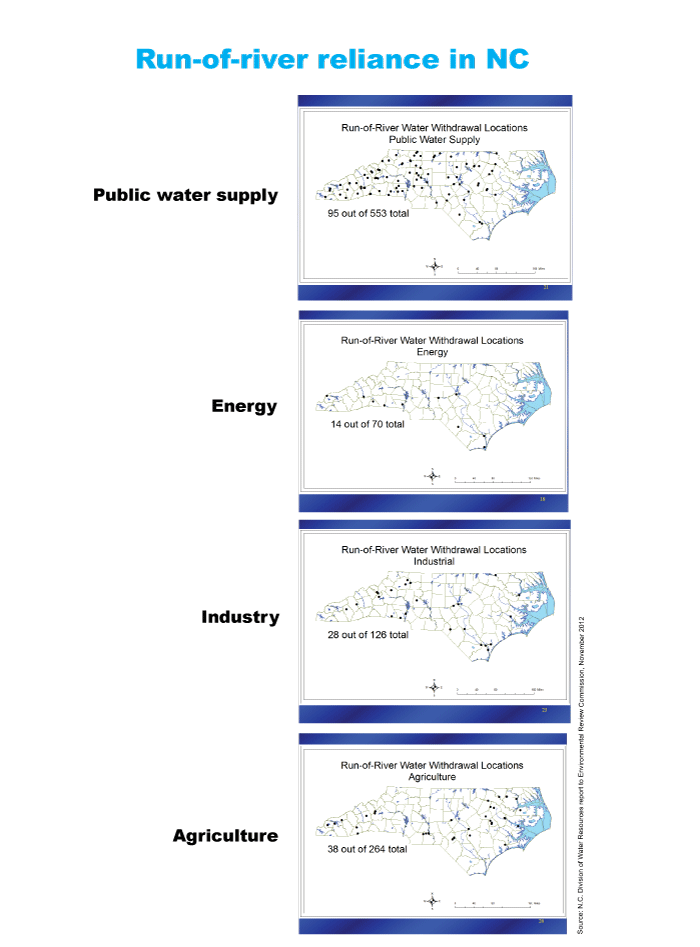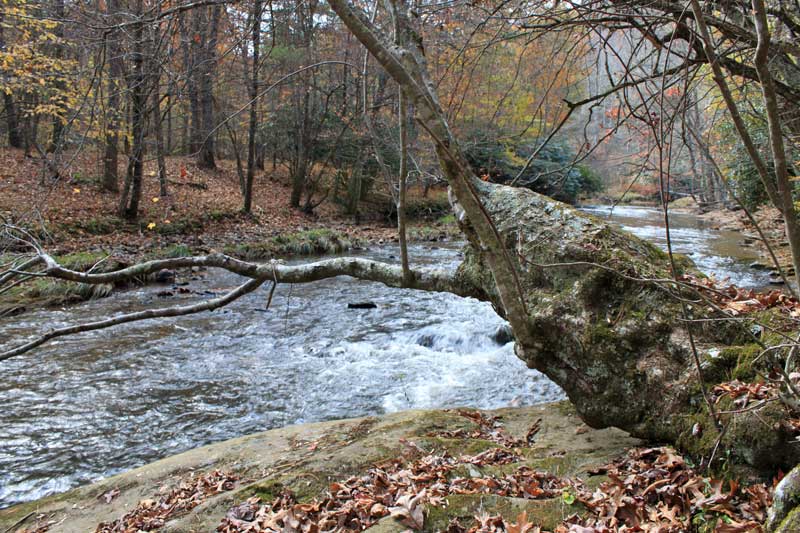Five common misconceptions about water rights in N.C.



Back in the early days of the Coastal Area Management Act, North Carolina locked in a policy position regarding permitted uses of property next to water: the uses had to be “water dependent” or else they were not permitted. This policy was based on some science that showed water pollution increased significantly the more there were commercial and industrial uses next to the water. Some restaurateurs along the historic river walk in Wilmington chafed at that policy, and so in the mid-1990s I found myself walking beside the lower Cape Fear River with Joan Weld and Linda Rimer, then the two assistant secretaries for natural resources and environment in the State. The capable division director of the Division of Coastal Management, Roger Shecter, presented the thinking underlying the policy. But we agreed with the restaurant owners: it was better for the environment to get people back around the water, where they could enjoy the fruits of decades of regulatory efforts to clean up our rivers.
Read More →Our heads are round so thought can change direction. ~Allen Ginsberg
This is the way the question often comes to me–who owns it?–as a way of asking either who controls water in NC (for beneficial purposes) or who is responsible for it when it does harm (e.g., flooding). Framing the question this way is an unsurprising reflection of the importance of property rights in American law. And property rights do matter for water law. But water, the great solvent, has a way of dissolving preconceptions about ownership of property and forcing anyone who really cares to reexamine their understanding of ownership itself. Things, like water, that are always moving, often in mysterious ways, and that are so vital to us that we can’t imagine life without them, just don’t fit well in simple definitions of “property.” To make matters especially complicated for water, the law has come to treat its ownership very differently as it moves through the eternal cycle in which it always moves: from ocean to sky, back to earth as rain (“stormwater”) or snow, then either infiltrating into the ground (groundwater) or into streams and lakes (surface water), and then passing through myriad human channels, including our own bodies, on its way back to the sea. In this post, I will outline the way NC law treats ownership of groundwater–probably our biggest and ultimately most important store of freshwater.
Read More →Some fields of law have fairly clear boundaries. Not so with environmental law. In order to say anything with the least bit of clarity about the field of environmental law as such, you need some sense of what does and doesn’t count as part of the field. I have a simple model of what counts, for my own purposes. In this entry, I will explain my model of the field, and also talk about some of the limitations and unresolved boundary issues with my model. It starts with a recognition that law has long been concerned with two related things, natural resources and waste.
Read More →